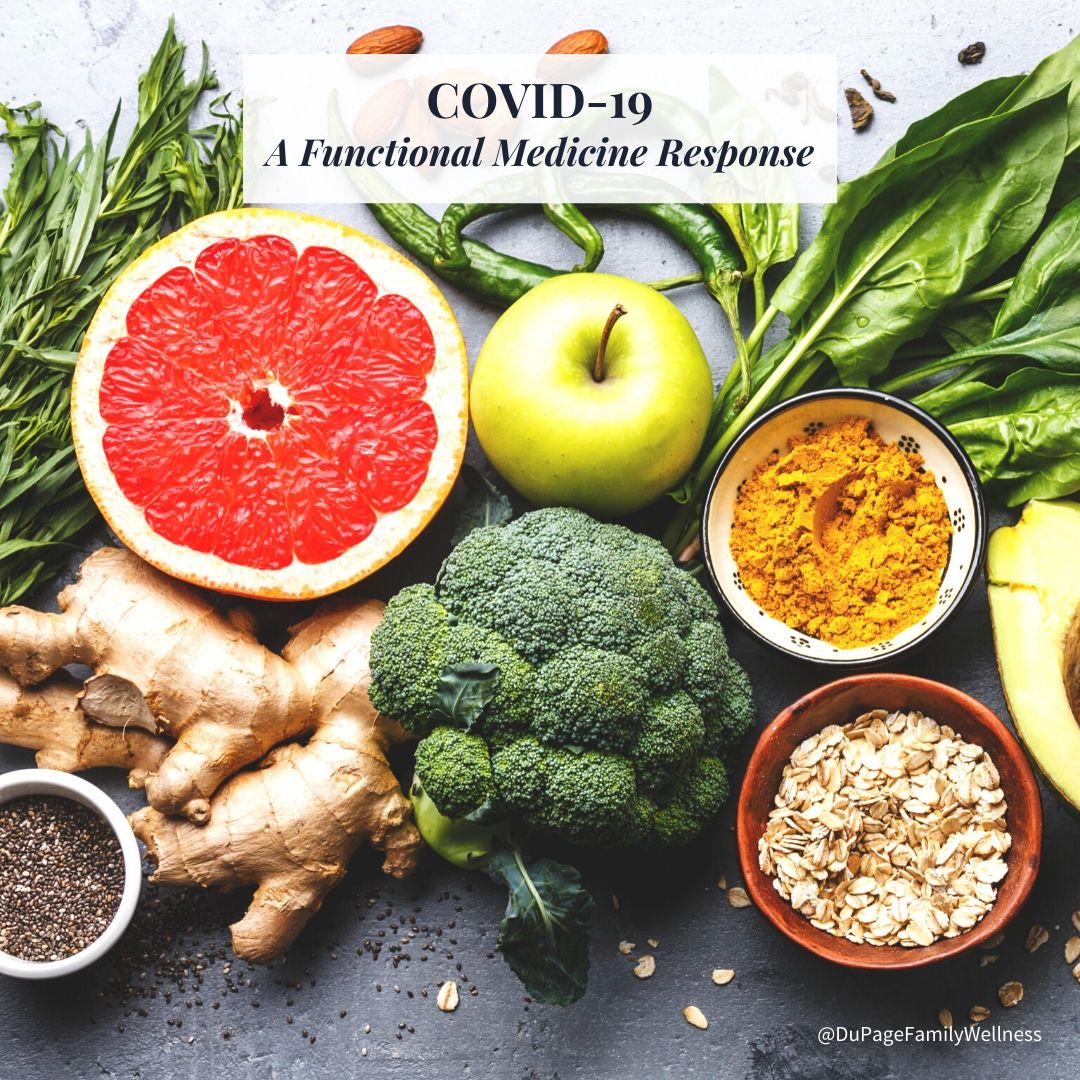 As our nation continues to battle the Covid and the effects of the shut down, many people are looking to get healthy and improve their immune system. These people want to do all they can to decrease their chances of getting the virus, or minimize the severity if they do contract it.
As our nation continues to battle the Covid and the effects of the shut down, many people are looking to get healthy and improve their immune system. These people want to do all they can to decrease their chances of getting the virus, or minimize the severity if they do contract it.
Functional medicine is focused on creating health within the body. It both approves of these efforts, and is able to provide some clear direction to support the immune system through basic lifestyle changes.
In a recent article, “The Functional Medicine Approach to COVID-19: Nutrition and Lifestyle Practices for Strengthening Host Defense” authors Hanaway and Minich explore many things we can do to support our immune system!
Health and Covid-19
According to Minich and Hanaway, “The developing symptoms of COVID-19, as well as the progression of illness and fatality, are clearly a function of the overall health status of the individual. Complex, chronic diseases such as obesity, hypertension, and diabetes are directly correlated with risk of disease severity and mortality.”
Recognizing this correlation between our lifestyle and our risk is an important step towards change. When we know better, we can do better! Embracing some of these lifestyle changes will be challenging to do, but a strong understanding of the science can give us the motivation to follow through.
So, let’s look at these lifestyle interventions that include nutrition, sleep, exercise, stress reduction, and connection.
Nutritional Choices
The foods we eat have an incredible impact on our bodies ability to maintain health. Research has shown that our gut health directly impacts our immune system and overall health.
Each meal we eat influences our system. When we choose healthy foods we supply nutrients to the body and support healthy immune function. On the other hand, when we choose poorly it disrupts the system.
Read more ...
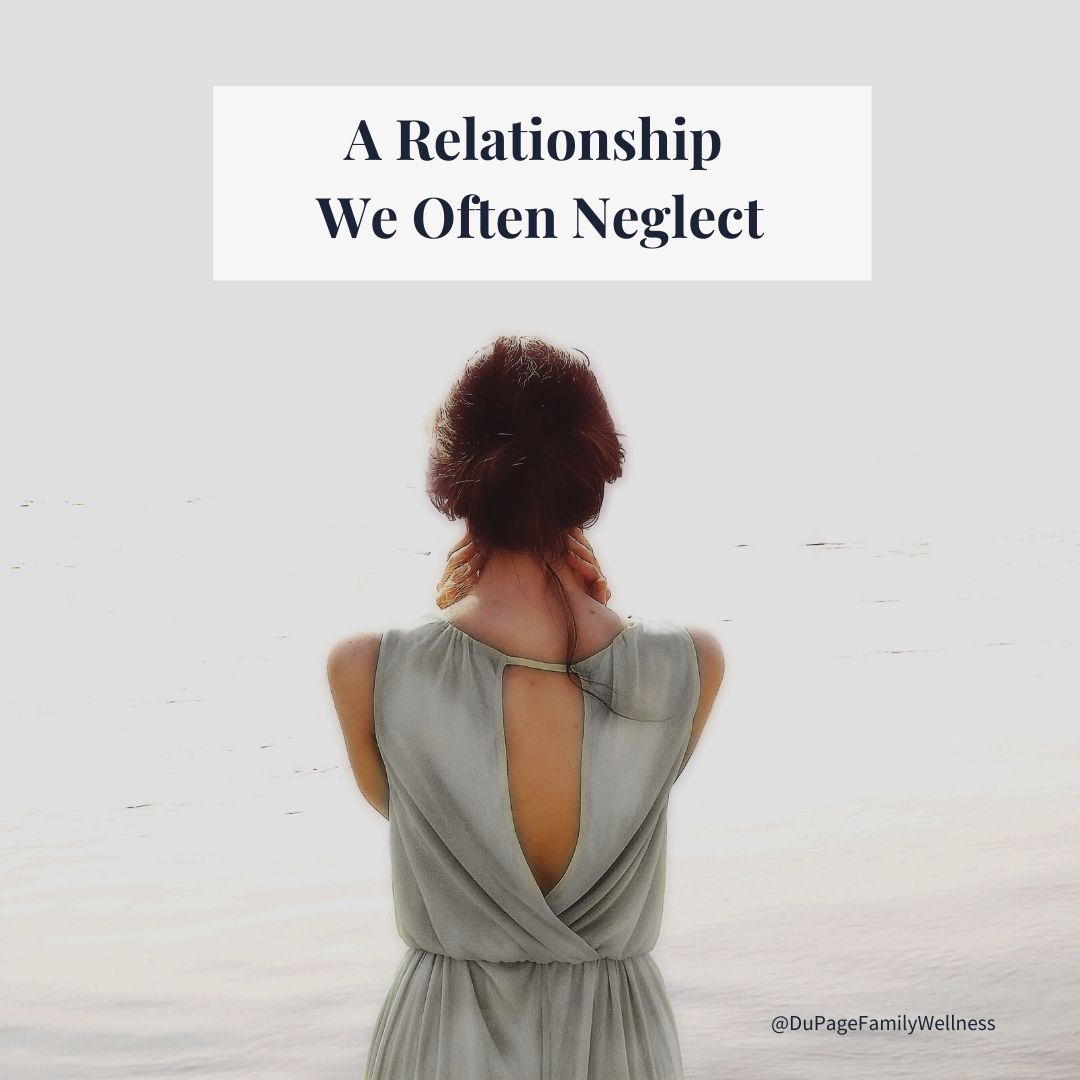 Responding appropriately to communication is an extremely important aspect of any relationship. If you consistently ignore someone that you are close with the relationship will be affected. The distance between you will grow, the person may stop sharing with you, and eventually intimate contact is lost.
Responding appropriately to communication is an extremely important aspect of any relationship. If you consistently ignore someone that you are close with the relationship will be affected. The distance between you will grow, the person may stop sharing with you, and eventually intimate contact is lost.
There is one type of relationship that is especially easy to overlook. Many of us have neglected this important relationship without even realizing it. The distance this brings leaves us feeling disconnected. I am talking about the relationship with your body!
Body Awareness
Awareness of one's body involves being in touch with your body, listening to it’s signals, and recognizing where it is in space. While these things may seem straightforward and simple there are many reasons why people are not in touch with their own body’s.
One of the main reasons for this disconnect is the busyness of life. Living in a fast paced society provides many distractions that keep us from paying attention to ourselves. Everyday our body sends us input and insight, but many times we ignore this communication.
Traumatic experiences may also cause an individual to become disconnected with their body. Dissociation is a protective mechanism that helps an individual get through an unbearable event or situation. While it can be useful as a short term coping mechanism, it is not helpful long term.
Befriending Your Body Again
Many people never think about being aware of their body, but when they are intentional about it they can begin to reestablish this important relationship. There are many things that can be done to create greater body awareness.
Developing greater body awareness is valuable for everyone. It’s important to recognize where you are in your awareness of your body and build off of that. Even small steps done consistently can make a big difference.
Technically speaking the three categories of body awareness that we can develop are interoception, proprioception, and spatial awareness. Let’s take a look at what those are and explore ways to grow in each of these areas.
Read more ...
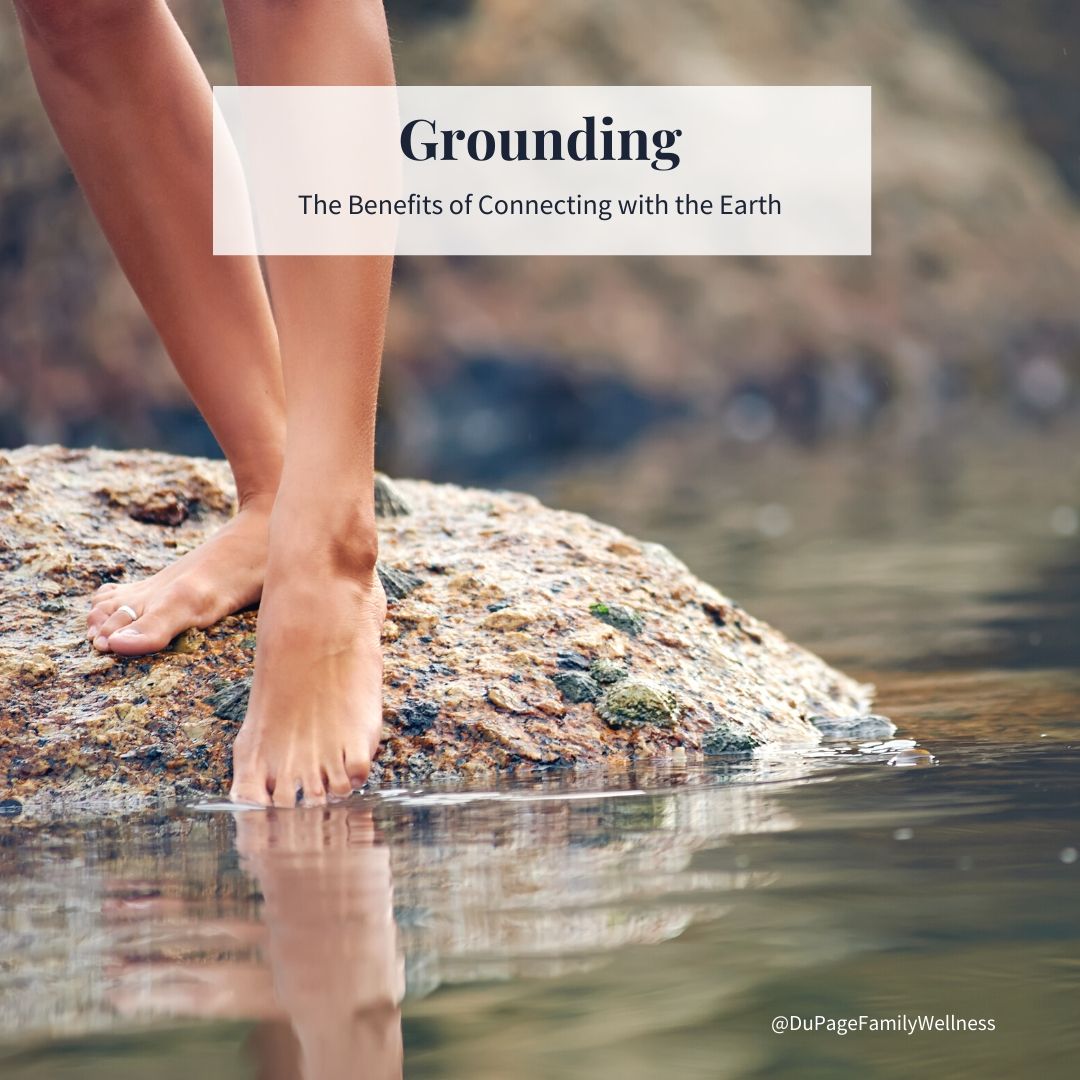 Children love to play outside - digging in the mud, picking wildflowers, walking barefoot, playing in the sprinkler, or simply lying in the grass. It is one of the highlights of childhood. They explore the world, interacting with it instinctually.
Children love to play outside - digging in the mud, picking wildflowers, walking barefoot, playing in the sprinkler, or simply lying in the grass. It is one of the highlights of childhood. They explore the world, interacting with it instinctually.
As we grow up we often lose this connection with the earth and the many benefits this connection provides. But the practice of grounding is gaining popularity in the holistic wellness community, and even attracting the attention of some researchers.
Let’s look at this ancient practice and how we can engage in it today!
What is Grounding
“Grounding” or “earthing” is an ancient practice of putting the body in direct contact of the earth’s soil (or water).
It is based on the belief that we can draw from the earth's energy when we connect with it in this way. Since the earth carries a negative charge, we are able to pick up the extra electrons on the earth's surface. These electrons are then able to pair with free radicals within the body and neutralize them. In this way, grounding acts as an antioxidant (1).
Grounding can occur anytime we are in contact with substances that conduct these electrons (water, dirt, sand, concrete, etc.). This means that even a simple walk to get your mail can be beneficial if you are barefoot.
Benefits of Grounding
Grounding is believed to have many benefits that go beyond what can be measured. While more research is needed, studies are beginning to find some real benefits of grounding.
- Better sleep
- Stress reduction
- Improved Mood
- Pain Reduction
- Cardiovascular Health
- Decreased Inflammation
If you are interested in looking at the science behind grounding, check out Healthline’s article “Grounding: Exploring Earthing Science and the Benefits Behind It.”
Risks of Grounding
While there are few risks of grounding, it is important to be aware of your surroundings. Obviously you will need to be aware of dangers such as sharp objects, stinging insects, etc.
Read more ...
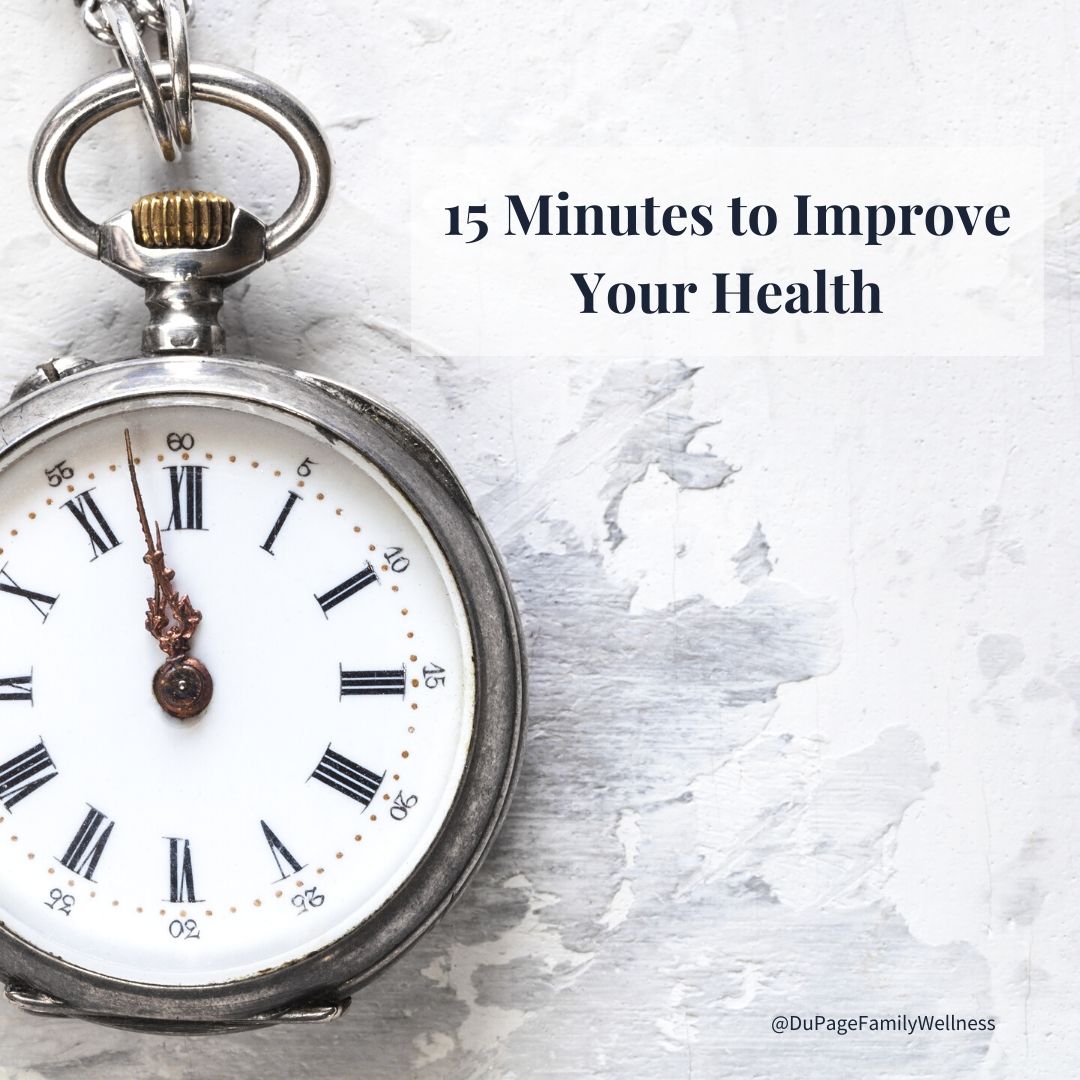 Many people are experiencing the benefits of journaling for 15 minutes a day!
Many people are experiencing the benefits of journaling for 15 minutes a day!
While keeping a journal is an ancient practice, it has become extremely popular today and has attracted the attention of many research scientists. This simple exercise can have a profound effect on both your mental and physical health.
It is amazing to see the research confirm what proponents of journaling have told us all along. As we look at the benefits of journaling it becomes clear that this inexpensive, simple practice is an investment worth our time.
What is Journaling?
Journaling is a way to express yourself freely through the written word. This can take on many different forms and there are no rules to how this is done.
Many people simply start writing about their day, something that is bothering them, or a problem they are trying to solve. Getting their emotions out on paper helps clarify their experience and releases emotion. Other people use their journal to remind themselves about what they have accomplished, while others focus on things for which they are grateful.
Some people find that it is helpful to use a prompt to start journaling. Questions or inspirational quotes make good journal prompts, encouraging people to consider things they otherwise might overlook. The important thing is to let the writing flow freely without censoring yourself.
Tips for Journaling
- Confidentiality: Journals should be considered a private space. Most people feel more liberty to share their thoughts when they know other people will not read them. From time to time you may choose to share a portion of their journal with a trusted friend, but it should be assumed that writings are for the person journaling and no one else.
- Uncensored & Unedited: Journals are a place to get thoughts down on paper as freely as possible. Discoveries are best made when you get in a flow and don’t think too hard. For this reason it is best not to censor or edit your work. Give yourself permission to get it out on paper. Tap into those thoughts that otherwise would remain unconscious. Don’t let grammar or punctuation weigh you down.
Read more ...
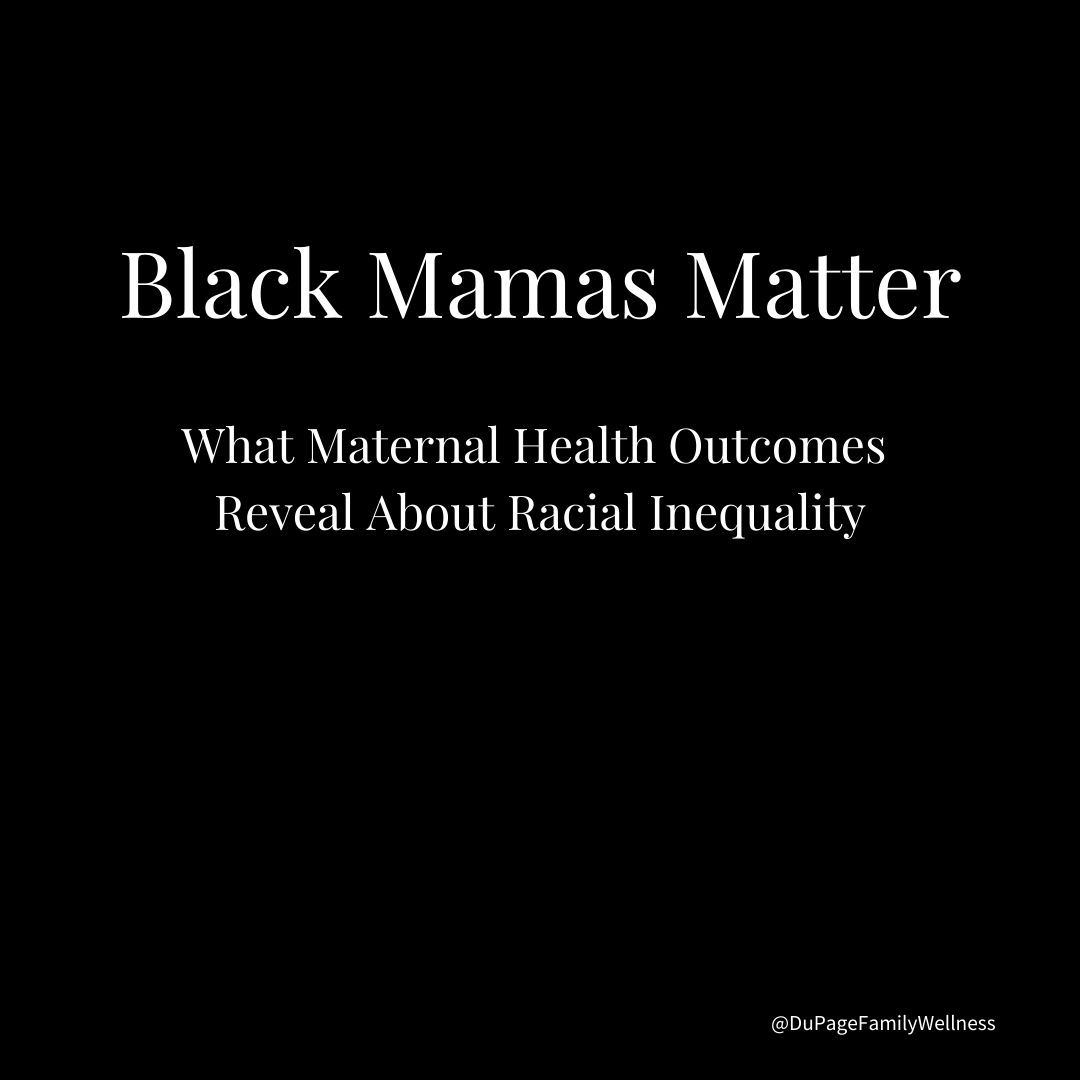 Looking at issues of racial inequality can be uncomfortable. Many people would like to believe that the world treats everyone in a fair manner. When evidence reveals that it doesn’t, we should be uncomfortable, because we shouldn’t be comfortable with injustice.
Looking at issues of racial inequality can be uncomfortable. Many people would like to believe that the world treats everyone in a fair manner. When evidence reveals that it doesn’t, we should be uncomfortable, because we shouldn’t be comfortable with injustice.
One would hope that the medical community - those there to care for your health - would be free from this inequality. Unfortunately, especially when it comes to maternal health outcomes that is simply not the case!
I understand that many things in this article may be hard to read. But if we want to truly understand these issues and make a difference, it is important to take an honest look at both where we are at as a nation and how we got there.
In a way, I hope this article makes you uncomfortable... uncomfortable enough to respond with compassionate action! (And don’t worry, we won’t be focusing only on the problem, there will be some action points at the end of the article so that you can be part of the solution today.)
Even though it is a good thing for many of us to be in this uncomfortable discussion, I want to honor those who have been affected directly by these issues. Therefore I am issuing my first ever trigger warning.
**Trigger Warning - Racial inequality, negative maternal health outcomes, maternal mortality, medical cruelty, etc.**
The Current Truth
In the US, Black women are actually three to four times more likely than White women to die from pregnancy related complications (1). Their babies have twice the rate of preterm deliveries and low birth rates (2). It is important to note that research has found “this increased risk of pregnancy-related death among Black women is independent of age, parity, or education” (3).
One study calculated the amount of patients with preeclampsia, eclampsia, abruptio placentae, placenta previa, and postpartum hemorrhage. It found that while the prevalence rates were the same, Black women were 2 to 3 times more likely to die from these issues then White women were (3).
In order to understand this tragedy, it is important to look at both our history as well as current factors.
Read more ...
 As our nation continues to battle the Covid and the effects of the shut down, many people are looking to get healthy and improve their immune system. These people want to do all they can to decrease their chances of getting the virus, or minimize the severity if they do contract it.
As our nation continues to battle the Covid and the effects of the shut down, many people are looking to get healthy and improve their immune system. These people want to do all they can to decrease their chances of getting the virus, or minimize the severity if they do contract it.

 Responding appropriately to communication is an extremely important aspect of any relationship. If you consistently ignore someone that you are close with the relationship will be affected. The distance between you will grow, the person may stop sharing with you, and eventually intimate contact is lost.
Responding appropriately to communication is an extremely important aspect of any relationship. If you consistently ignore someone that you are close with the relationship will be affected. The distance between you will grow, the person may stop sharing with you, and eventually intimate contact is lost.  Children love to play outside - digging in the mud, picking wildflowers, walking barefoot, playing in the sprinkler, or simply lying in the grass. It is one of the highlights of childhood. They explore the world, interacting with it instinctually.
Children love to play outside - digging in the mud, picking wildflowers, walking barefoot, playing in the sprinkler, or simply lying in the grass. It is one of the highlights of childhood. They explore the world, interacting with it instinctually.  Many people are experiencing the benefits of journaling for 15 minutes a day!
Many people are experiencing the benefits of journaling for 15 minutes a day! Looking at issues of racial inequality can be uncomfortable. Many people would like to believe that the world treats everyone in a fair manner. When evidence reveals that it doesn’t, we should be uncomfortable, because we shouldn’t be comfortable with injustice.
Looking at issues of racial inequality can be uncomfortable. Many people would like to believe that the world treats everyone in a fair manner. When evidence reveals that it doesn’t, we should be uncomfortable, because we shouldn’t be comfortable with injustice.